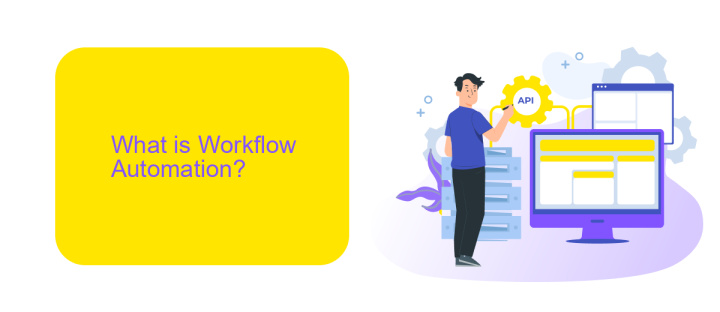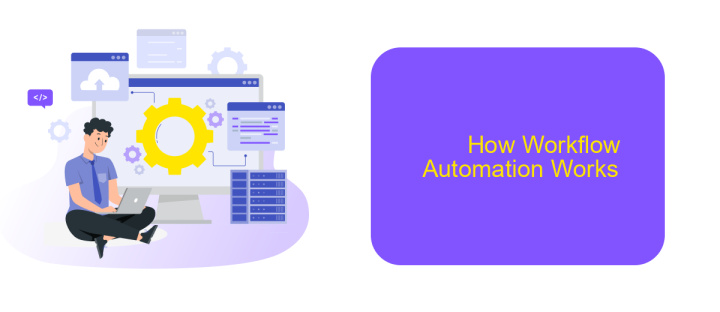Workflow Automation Definition
Workflow automation refers to the use of technology to streamline and automate repetitive, time-consuming tasks within business processes. By implementing workflow automation, organizations can enhance efficiency, reduce human error, and free up employees to focus on more strategic activities. This article delves into the definition of workflow automation, its benefits, and how it can transform modern business operations.
Introduction
Workflow automation is a transformative approach that leverages technology to streamline and optimize business processes. By automating repetitive tasks, organizations can improve efficiency, reduce errors, and free up valuable time for more strategic activities. The importance of workflow automation has grown significantly as businesses seek to remain competitive in a fast-paced digital landscape.
- Increased productivity by automating routine tasks
- Enhanced accuracy and reduced human error
- Cost savings through efficient resource utilization
- Improved compliance and audit trails
Integrating various systems and applications is a critical aspect of workflow automation. Services like ApiX-Drive facilitate seamless integration, allowing businesses to connect their tools and automate data transfer without the need for extensive coding. This not only simplifies the automation process but also ensures that different systems work harmoniously together, further enhancing overall efficiency.
What is Workflow Automation?

Workflow automation is the process of designing, executing, and automating a series of tasks, processes, and approvals to streamline business operations. By leveraging technology, companies can reduce manual intervention, minimize errors, and increase efficiency. This automation can be applied to various business functions, including marketing, sales, human resources, and finance. The ultimate goal is to improve productivity and ensure that repetitive tasks are handled consistently and accurately, freeing up employees to focus on more strategic activities.
One of the key components of workflow automation is the integration of different tools and systems. Services like ApiX-Drive facilitate this by enabling seamless connections between various applications, allowing data to flow effortlessly from one platform to another. This eliminates the need for manual data entry and ensures that information is always up-to-date across all systems. By utilizing such integration services, businesses can create more cohesive and efficient workflows, ultimately leading to better performance and higher satisfaction among both employees and customers.
Benefits of Workflow Automation

Workflow automation streamlines business processes by reducing manual intervention, thereby increasing efficiency and productivity. It minimizes human errors and ensures that tasks are completed consistently and accurately.
- Time Savings: Automated workflows significantly reduce the time required to complete repetitive tasks, allowing employees to focus on more strategic activities.
- Cost Efficiency: By automating routine processes, businesses can lower operational costs associated with manual labor and resource allocation.
- Improved Accuracy: Automation eliminates the risk of human error, ensuring that tasks are performed correctly and data is accurately processed.
- Enhanced Collaboration: Workflow automation tools facilitate better communication and coordination among team members, leading to more cohesive project management.
- Scalability: Automated systems can easily adapt to growing business needs, making it easier to scale operations without a proportional increase in workload.
Services like ApiX-Drive help businesses integrate various applications and automate workflows seamlessly. By connecting different tools and platforms, ApiX-Drive enables smooth data transfer and process automation, further enhancing operational efficiency and reducing the complexity of managing multiple systems.
How Workflow Automation Works

Workflow automation simplifies complex processes by using technology to perform routine tasks automatically. By eliminating manual interventions, it enhances efficiency and reduces the likelihood of errors. This automation can be applied across various domains including marketing, sales, HR, and customer service.
To set up workflow automation, businesses first identify repetitive tasks that consume time and resources. Once identified, these tasks are mapped out into a workflow diagram that outlines each step and decision point. The next step involves selecting appropriate tools and software to automate these processes.
- Define the tasks and processes to be automated.
- Create a workflow diagram to visualize the process.
- Select the right automation tools and software.
- Implement the automation and test for efficiency.
- Monitor and optimize the automated workflow regularly.
Tools like ApiX-Drive facilitate seamless integration between various applications, making it easier to automate workflows. ApiX-Drive allows businesses to connect different services and automate data transfer, ensuring that workflows run smoothly without manual intervention. This not only saves time but also improves overall productivity.
Examples of Workflow Automation
Workflow automation can significantly enhance efficiency in various business processes. For example, in a marketing department, automating email campaigns can save valuable time and ensure consistent communication with clients. By using tools like Mailchimp, businesses can set up automated workflows to send follow-up emails, segment audiences, and track engagement metrics, all without manual intervention. This not only improves productivity but also allows for more personalized customer interactions.
Another example is the integration of multiple platforms within a company. Services like ApiX-Drive enable seamless connections between different software applications, such as CRM systems, social media platforms, and project management tools. By automating data transfer and synchronization between these systems, businesses can reduce errors, save time, and ensure that all departments are working with the most up-to-date information. This kind of integration is crucial for maintaining operational efficiency and supporting data-driven decision-making.


FAQ
What is workflow automation?
How can workflow automation benefit my business?
What types of tasks can be automated?
How do I get started with workflow automation?
Is workflow automation suitable for small businesses?
Time is the most valuable resource for business today. Almost half of it is wasted on routine tasks. Your employees are constantly forced to perform monotonous tasks that are difficult to classify as important and specialized. You can leave everything as it is by hiring additional employees, or you can automate most of the business processes using the ApiX-Drive online connector to get rid of unnecessary time and money expenses once and for all. The choice is yours!

